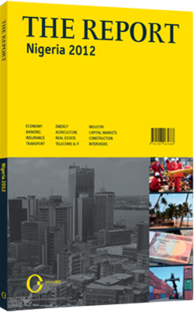OBG talks to Ken Igbokwe, Country Leader, PwC Nigeria

Interview: Ken Igbokwe
How would you rate the fiscal burden for corporations operating in Nigeria?
KEN IGBOKWE: Tax rates for corporate entities in Nigeria are favourably comparable to similar developing countries in Africa and around the world. This means that the total tax borne by corporates is not unbearable, although it could be more competitive in some respects. Beyond the statutory tax rates there is an additional burden regarding hidden taxes, such as non-recoverable withholding tax on income, non-claimable input value-added tax, statutory contributions and levies. In addition, a major part of the fiscal burden for corporates is actually the cost of compliance. This covers the cost of preparing and filing various tax returns, dealing with tax audits, dispute resolution, processing tax clearance certificates and so on. It is the combination of these hidden taxes and the huge compliance cost that make the fiscal burden in Nigeria very high.
In light of the lingering fiscal deficit, what is the outlook for a reduction in corporate taxes?
IGBOKWE: The lingering fiscal deficit will to a large extent make it politically difficult to reduce corporate taxes anytime soon. However, the issue is not with the headline rate, it is more to do with evasion, weak enforcement and corruption. If we address these issues, Nigeria will be able to generate more tax revenues, even with a moderate reduction in the tax rates.
Which changes to the country’s fiscal code would most benefit the private sector in terms of operations and increased activity?
IGBOKWE: Some of the major policies discouraging investment include the requirement in the Companies and Allied Matters Act that a foreign company wishing to carry on business in Nigeria must incorporate a local firm for that purpose. Many times the nature and duration of business to be undertaken do not require incorporation where a branch or representative office will do. In addition, other policies that discourage investment include the commencement rule under the Companies Income Tax Act, which levies double taxation on the profits of a start-up company, and the excess dividend tax provision, which penalises investment holding companies, group firm configurations and other such compound entities that invest their profits rather than distribute them. When such profits are subsequently distributed, the company faces an additional 30% tax on the past profits reinvested. In fact, the excess dividend tax provision nullifies the effect of many tax incentives. These are some of the issues that must be addressed as a matter of urgency to attract the private investment necessary to facilitate economic growth.
What are the priorities for the government as it seeks to ensure proper tax reporting?
IGBOKWE: What we have seen recently is more awareness and stakeholder engagement by governments at various levels as well as the tax authorities. It is important to encourage proper reporting and voluntary compliance. In addition, there have been new laws, such as the Fiscal Responsibility Act and Freedom of Information Act, that are aimed at ensuring not only proper tax reporting but also transparency in the utilisation of tax revenue. The adoption of International Financial Reporting Standards (IFRS) in Nigeria is also expected to improve tax reporting by taxpayers.
To what extent are external auditors adequately skilled in IFRS? What impact has IFRS implementation had on auditing fees?
IGBOKWE: I think some external auditors are skilled in IFRS, but many still have a long way to go in building capacity. The adoption of IFRS will pose great challenges to not only external auditors but also to preparers and regulators. As a result, everyone who will be affected must brace for the challenge and be willing to learn and relearn. Since auditors usually base their fees on the scope of work to be done, it is likely that fees will increase to accommodate the additional work.
You have reached the limit of premium articles you can view for free.
Choose from the options below to purchase print or digital editions of our Reports. You can also purchase a website subscription giving you unlimited access to all of our Reports online for 12 months.
If you have already purchased this Report or have a website subscription, please login to continue.

